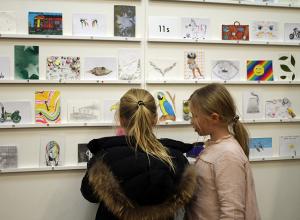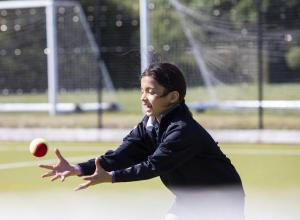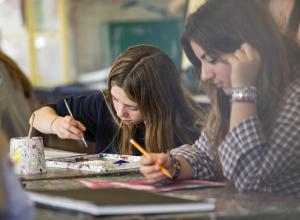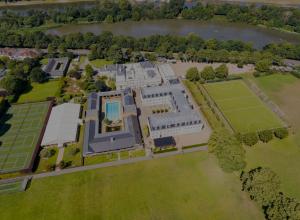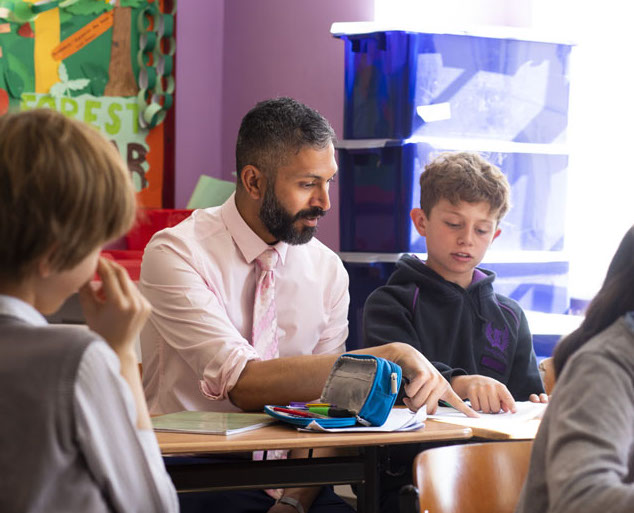
What has Black History Month got to do with the way we teach Mathematics? Warren Rodricks provides a compelling take in his brilliant new blog
It has been a little while since I last wrote and I wasn’t actually planning on something new. However, the importance of this month has me back in front of my computer to discuss an incredibly important topic: The World. Now I know what you are thinking. ‘The World’ is way too broad of a topic for a maths blog and I am going to quickly find myself out of depth. Wait and let me explain. For you see, though I am writing about the world, I want to discuss a narrowed down, more important concept of our world and that is: The World is not fair.
I am writing about the world but I want to discuss a narrowed down, more important concept of our world and that is: The World is not fair.
Warren Rodricks
I am sure as parents you have heard this just as much as I have as both a teacher and a father. ‘It is not fair,’ is a common complaint of children the world over and I often find myself correcting them saying that their plight, though making them unhappy and perhaps being unfortunate, is not necessarily the same as being unfair. However, I am writing with certainty that the world is indeed, not fair. There is plenty of evidence to support this statement and I doubt any reading this blog would contend otherwise given the daily news. At Harrodian we care about this deeply. Equality matters. To suggest anything else would be entirely wrong. So, the world is unfair. We know this…now what?
Black History Month, funnily enough, is this month. October. There is a complexity to the month and the theory behind it is something that I am not an expert in but I do have some understanding of. It is not a cure-all for the injustices of the world and I am not suggesting that its celebration will end the injustice we see everyday. Rather it is a start. It is a start to the understanding that all stories matter, all histories matter. In the past, it can be argued, only certain stories were shared, only certain histories valued. For the world to become a better place, a more fair place, this simply must change. The change needed is not only a month dedicated to histories previously unspoken of, but rather a fundamental rethinking of what our students learn and why they must learn it.
For the world to become a better more fair place the change needed is not only a month dedicated to histories previously unspoken of, but a fundamental rethinking of what our students learn and why they must learn it.
As Winston Churchill once said, “Those who fail to learn from history are doomed to repeat it,” which is rather apt given the focus of this blog. If our history is filled with injustice, cruelty and unkindness then we must ensure our students learn from it so that it won’t be their future. Interestingly Churchill also was quoted as saying, “History will be kind to me for I intend to write it,” which again is important in thinking about who has written our histories in the past and why they might be weighted in one direction or another. Perhaps a different perspective to history is required to give a balanced recollection of what has happened and the impact it had at the time and on our world today.
Through studying place value and number in the context, my 10s class is developing an understanding of numbers, their values and what they mean when considering the world around them
Which leads me back to maths, and, if I dare say curriculum creation, as a whole. There is a train of thought that says we should not need a month devoted to Black History. Not because there is no importance in such a month but rather because the curriculum should already include a diversity of study and bring in voices from the previously unheard. If I am honest, I am probably one of those people. However, I am also fully aware that this is not happening at a larger scale and that to set aside a month is a good starting point for all of us to reconsider what we teach. Which now, really does, lead me back to maths and specifically my 10s maths class. We have been studying place value and number and our contextual focus has been poverty. Through such a topic the class is developing an understanding of numbers, their values and what they actually mean when considering the world around them. Thus, speaking about roughly 14 million people living in poverty in the UK creates an impact that I cannot create if I am talking about 14 million cupcakes.
Speaking about 14 million people living in poverty in the UK creates an impact that I cannot create if I am talking about 14 million cupcakes
It has also allowed me to shift focus outside of the UK and my students to the startling discovery that the 10 poorest countries in the world are African nations. This inevitably led to questions and considerations. Which is exactly the type of curriculum that we want our students to engage in. Why are these countries so poor? What is being done to help? How, exactly, are loans helping the situation? Historically, were these countries poor? The complexity of the answers are not naturally geared towards a Year 6 maths class, but their inclusion as part of a mathematical topic means that stories that must be heard and that must be interpreted by our future leaders are beginning to be heard. In a truly masterful mastery way, such a study adds the depth we strive for in terms of considering maths and its use in the ‘real world’ whilst also offering a depth of understanding to the world itself.
Such a study adds the depth we strive for in terms of considering maths and its use in the ‘real world’ whilst also offering a depth of understanding to the world itself
The world is a complex place. It is an unfair place. And Black History Month is not going to solve that. Hopefully, what it does, at good schools, like Harrodian, is make teachers think about their teaching so that our students will learn from the vast array of histories, filled with conflict, pain and suffering as well as hope, love and bravery. Hopefully, it acts as the stimulus of change across schools, across countries and most importantly, across our children's lives. And as we know, every truly important journey starts with a single step. And once made, there is no looking back.
Mr Rodricks welcomes feedback to his blog at website@harrodian.com

